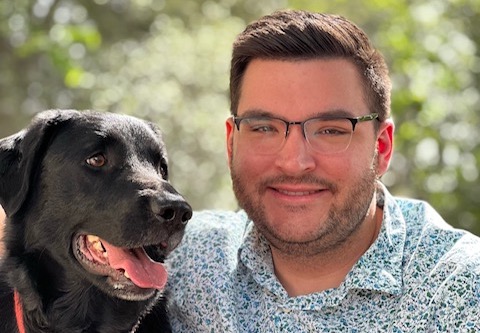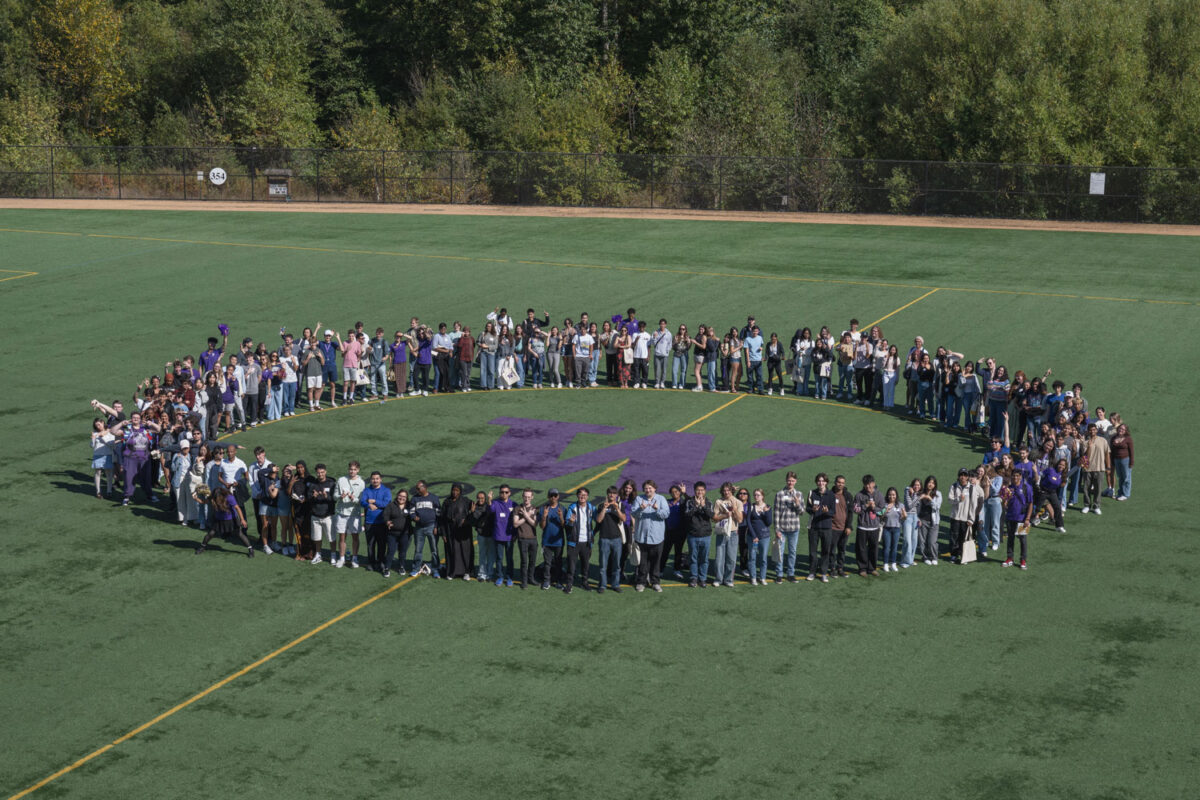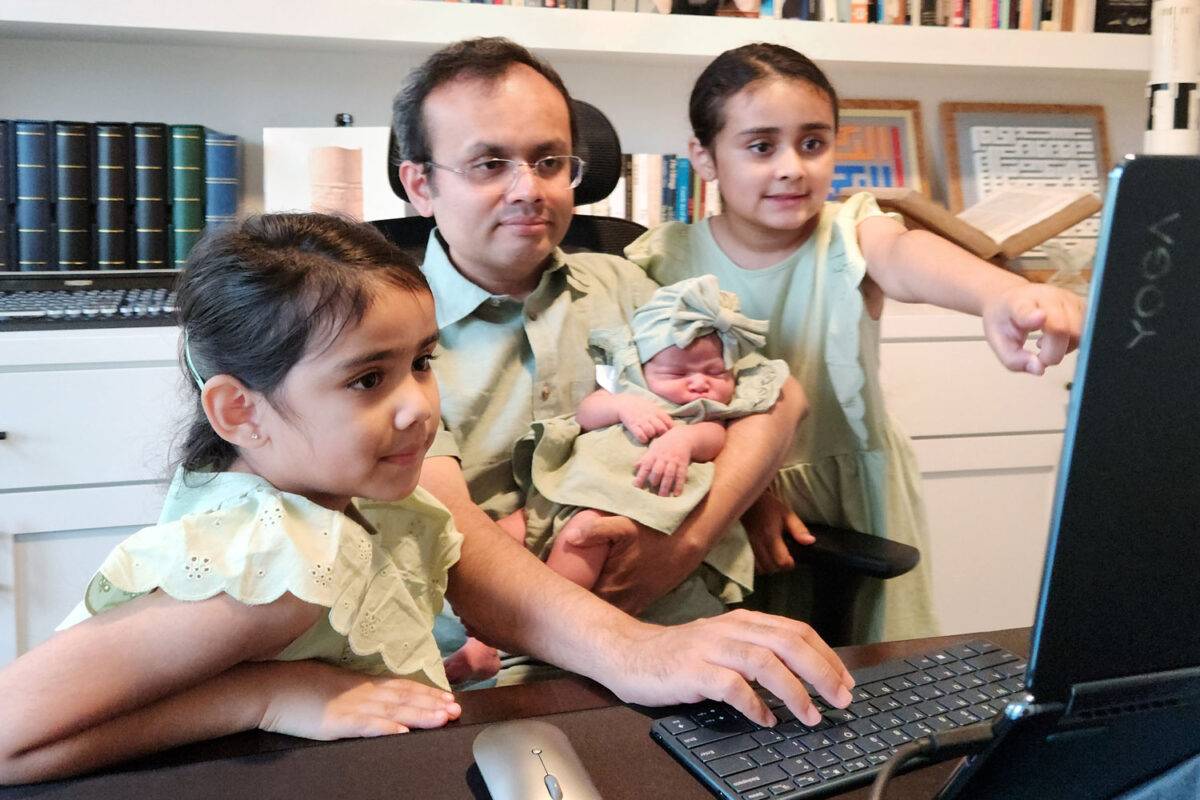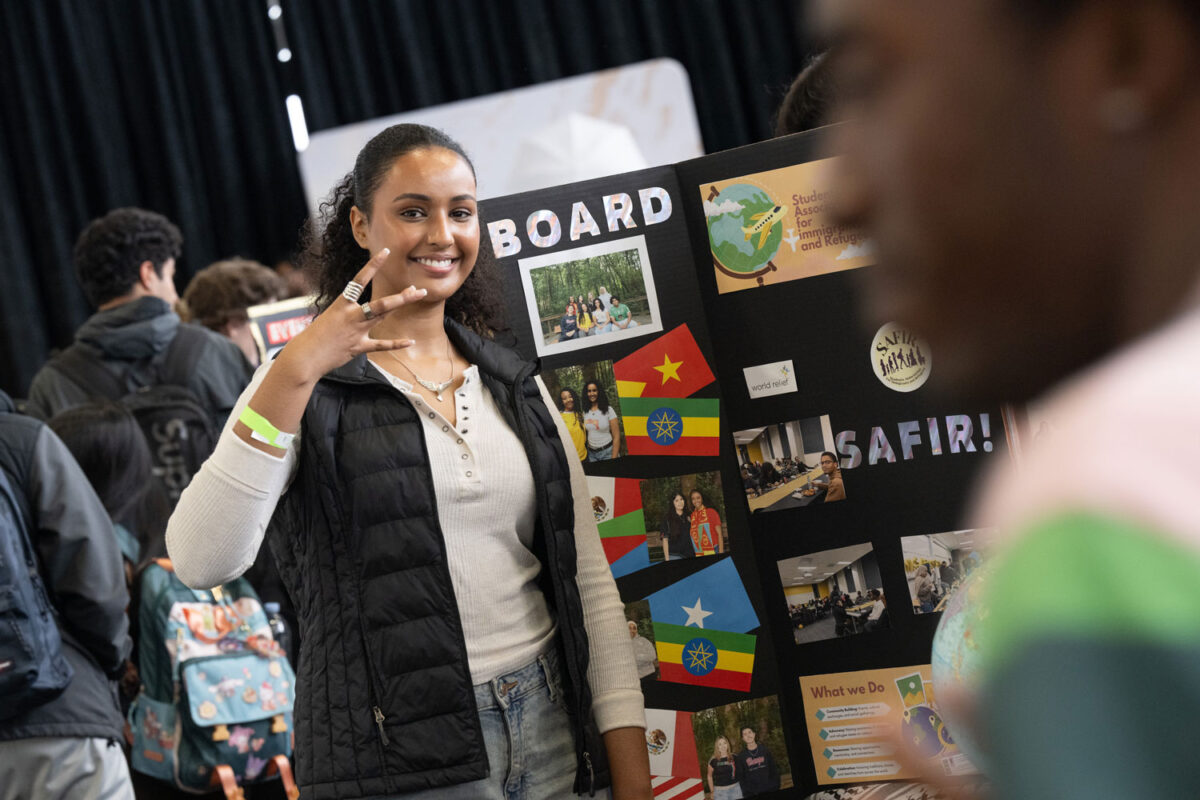James Booth ’19 is a systems administrator for a Los Angeles-based startup that uses virtual reality to help people deal with chronic pain.
He remembers exactly what sparked his lifelong interest in computer technology — a sort of aha! moment.
“Absolutely,” Booth said. “It was when my dad brought home that big beige IBM gear, with the gigantic CRT and everything, and brought it down to my room to show me.”

Booth is 26, and that big system ran Windows 99, he remembers. “There was a set of Sega games, and when he popped that thing in there and showed me what it was capable of, I instantly fell in love. Instantly! It was like, ‘This is the best thing ever.’”
Computers and IT remained his main focus as he grew up in California’s Simi Valley, but public service and all it entails interested him as well — and still does. So when it came time for college, Booth said he looked beyond California to “challenge myself and push beyond the boundaries of what I knew growing up.”
Finding his educational way
Booth’s search brought him to North Seattle College for his associate degree and then to UW Bothell for a Bachelor of Arts in Law, Economics & Public Policy in the School of Interdisciplinary Arts & Sciences.
Going from computers to public policy may be a “roundabout path many might not find themselves in,” Booth said, but he’s glad he did given his variety of interests and ambitions.
“I really like the UW as an institution and how forward-thinking they are with the programs they offer,” he said. “And I love the sense of community at UW Bothell. I found myself welcomed with open arms, and throughout my entire journey I felt very supported — by professors, advisers and peers. I made a lot of great friends I still talk to today.”
Booth has especially high praise for one professor in particular: Dr. Adam Romero, who taught the IAS 300 level course Booth took. As he recalled, the class was “genuinely interesting” and inspired him and other students to look forward to each class session. Romero is an associate professor and also teaches courses on the history of science and technology.
Making lasting impacts
“I loved how he led class in discussion … the way he broached the topics that IAS had to deal with,” said Booth. “He decided to use food as the mechanism to teach these concepts. It was a very well-thought-out curriculum that was really engaging and just knocked my socks off.”
Romero said that the course is titled “Interdisciplinary Inquiry: What to Eat” but that it is not really about nutrition. Rather, he said, the curriculum is a process of producing and interpreting knowledge through the lens of food and agriculture.
“The goal of the class,” he said, “is to improve students’ ability to read closely, to write and think critically, to communicate clearly, to research effectively and to work collaboratively.”
Looking back at what else made his undergraduate years so impactful, Booth advises any students new to UW Bothell to remember “the importance of just talking to people, meeting people.”
In his own case, he said, a fellow student who simply introduced himself at student orientation became a longtime friend. And the ability he honed while in college to open up interpersonally — which is encouraged on the UW Bothell campus — has helped him professionally as well.
Moving up to cybersecurity
The company Booth works for, which uses virtual reality in a health care setting, is called Applied VR. He helps handle the firm’s cybersecurity needs, a challenging and forever-changing area that has long interested him. “You always have to be learning,” he said.
He was initially hired to head Applied VR’s tech support for outside customers — folks having trouble with their VR headsets and such matters. But at a company gathering, remembering the casual confidence of his friend from orientation, he struck up a conversation with the firm’s new director of cybersecurity and talked about his interest in the topic.
Two months later, when a position in cybersecurity came open, that director remembered the chat. Booth got an interview and got the job.
He now shows students how legal institutions shape policy decisions and explains the political and economic contexts that influence the creation of laws.
One area of focus in the position, said the LEEP alumnus, is “stakeholder analysis and fundamentals of public policy — the needs of different groups and people and how they interact. It’s really the dynamics of how people work together and find solutions.”
Meeting employers’ needs
In many ways, Booth’s path has not been all that “roundabout” after all.
This comes as little surprise to Romero. Non-STEM majors may not always directly translate to jobs, he said, but a program like LEPP “nevertheless prepares students for any job because it teaches students how to learn, interpret and communicate knowledge — a skill that all employers are looking for, no matter what field.
“What I constantly hear from employers and recruiters,” he added, “is that the ‘soft’ skills like being able to work collaboratively are what make a successful employee.”
For his part, Booth said he wants to continue developing his skills in cybersecurity, earning certificates or even maybe a master’s degree in accelerated technology.
“But after that, it would really be a focus on people leadership and elevating other people to become whatever it is they want to be — leaders, subject matter experts, whatever their ambitions are — to help them fulfill themselves.”
Experiences that matter
Full circle, this ambition takes Booth back to what he loved about UW Bothell. “There is a genuine desire to see students succeed while they are there — and after they graduate.”
As for the future of virtual reality, Booth said he thinks it may be a while before it is widely accepted and used by the general public.
“But with the nature of technology and how fast it accelerates, we’ll see,” he said. “My position is that people might think, ‘Oh that’s not going to work, or it’s goofy,’ but once they see it for themselves and experience it — whatever the newest offering is in a couple of years — they might think, ‘Oh my gosh, I was wrong.’
“They might have an aha! moment of their own.”



